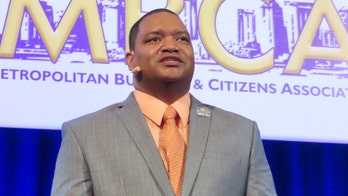The panel appointed by President Barack Obama to investigate the Gulf of Mexico oil spill is short on technical expertise but long on talking publicly about "America's addiction to oil." One member has blogged about it regularly.
Only one of the seven commissioners, the dean of Harvard's engineering and applied sciences school, has a prominent engineering background -- but it's in optics and physics. Another is an environmental scientist with expertise in coastal areas and the after-effects of oil spills. Both are praised by other scientists.
The five other commissioners are experts in policy and management.
The White House said the commission will focus on the government's "too cozy" relationship with the oil industry. A presidential spokesman said panel members will "consult the best minds and subject matter experts" as they do their work.
The commission has yet to meet, yet some panel members had made their views known
Environmental activist Frances Beinecke on May 27 blogged: "We can blame BP for the disaster and we should. We can blame lack of adequate government oversight for the disaster and we should. But in the end, we also must place the blame where it originated: America's addiction to oil."
And on June 3, May 27, May 22, May 18, May 4, she called for bans on drilling offshore and the Arctic.
"Even as questions persist, there is one thing I know for certain: the Gulf oil spill isn't just an accident. It's the result of a failed energy policy," Beinecke wrote on May 20.
Two other commissioners also have gone public to urge bans on drilling.
Co-chairman Bob Graham, a Democrat who was Florida governor and later a senator, led efforts to prevent drilling off his state's coast. Commissioner Donald Boesch of the University of Maryland wrote in a Washington Post blog that the federal government had planned to allow oil drilling off the Virginia coast and "that probably will and should be delayed."
Boesch, who has made scientific assessments of oil spills' effects on the ecosystem, said usually oil spills are small. But he added, "The impacts of the oil and gas extraction industry (both coastal and offshore) on Gulf Coast wetlands represent an environmental catastrophe of massive and underappreciated proportions."
An expert not on the commission, Granger Morgan, head of the engineering and public policy department at Carnegie Mellon University and an Obama campaign contributor, said the panel should have included more technical expertise and "folks who aren't sort of already staked out" on oil issues.
Jerry Taylor of the libertarian Cato Institute described the investigation as "an exercise in political theater where the findings are preordained by the people put on the commission."
When the White House announced the commission, Interior Secretary Ken Salazar and others made compared it with the one that investigated the 1986 Challenger accident. This one, however, doesn't have as many technical experts.
The 13-member board that looked into the first shuttle accident had seven engineering and aviation experts and three other scientists. The 2003 board that looked into the Columbia shuttle disaster also had more than half of the panel with expertise in engineering and aviation.




